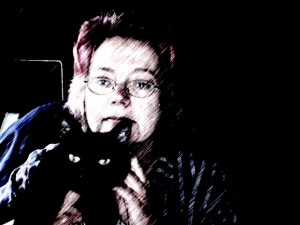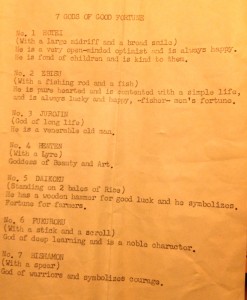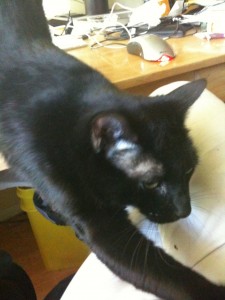 As you may know, the effectiveness of Facebook as a social media platform has recently changed for those of us who don’t usually pay for it but maintain a social media presence in order to publicize ourselves.
As you may know, the effectiveness of Facebook as a social media platform has recently changed for those of us who don’t usually pay for it but maintain a social media presence in order to publicize ourselves.
Many of Facebook’s changes affect fanpages. Think of a fanpage as a tiny website hosted by Facebook. Companies could create one in order to have a presence on Facebook, and their fans could go click “Like” on the page. You have one in the form of your author page. Here’s mine, for example.
The model for interacting with fans has been to post messages, which appear in your fans’ newsfeed. They respond by commenting and liking and hopefully by clicking on links in order to go buy your book or listen to your podcast or read the interview or blog post or whatever.
It’s hard to find a good overview of what’s happened, but it boils down to several things:
- There are indications that Facebook has changed the algorithm by which EdgeRank determines what posts show up in users’ newsfeed.
- Items show up in the newsfeeds of users who are mostly likely to comment or otherwise interact with them. Some feel that destroys the value of a fan page by as much as half.
- Facebook’s changes are intended to increase their revenue by forcing advertisers to promote posts.
- Getting advertisers used to Facebook branding and then starting to charge them may have been Facebook’s plan all along.
- People using Facebook will need to adjust to the changes in one way or another.
- Facebook wants people using the Reach Generator tool or paying to promote posts.
So I wanted to test out the changes for myself. Like most writers, I use social media to sell books but also to brand myself, spread news of upcoming events, etc. I also teach online classes, so I try to sell those as well. I had just announced a couple of new ones, so I figured I’d use that post for the test.
After I’d posted something, I clicked on “Promote this Post” to see what was involved, and saw it’d be $7 to promote. Wotthehell, as Mehitabel would say, and look, they even took Paypal.
One reason I’ve been a little dubious about all this is that in August I tried advertising on various social media (Facebook and Twitter) and search engines (Bing and Google) as well as on Hope Clark’s newsletter. I did see a lot more traffic on my site, but I don’t know how much of that translated into sales of books or classes. Overall, the newsletter, which was the cheapest, was also the most effective.
And, not to my surprise, here again it didn’t make much, if any difference, even though when I looked at Facebook’s results for my promoted post, I’m told, “Promoted posts stay higher in news feed to help people notice them. So far, your post has had 113.8x as many views because you promoted it.” That translated into a total of five visits clicking through the Facebook link yesterday. Five.
And that’s my point. Like most writers, my Facebook fan page just isn’t big enough for me to worry about this much. I’ll keep maintaining my Facebook presence, but I won’t spend money on advertising there but find most effective places. I’ll also make sure I don’t confine my social media activity to Facebook but use Delicious, Google+, Stumbleupon, Twitter, and Tumblr as well.
My advice for writers is not to waste money on social media advertising but to work on their blog and attracting readers through good content.
Enjoy this advice on social media for writers and want more content like it? Check out the classes Cat gives via the Rambo Academy for Wayward Writers, which offers both on-demand and live online writing classes for fantasy and science fiction writers from Cat and other authors, including Ann Leckie, Seanan McGuire, Fran Wilde and other talents! All classes include three free slots.
Prefer to opt for weekly interaction, advice, opportunities to ask questions, and access to the Chez Rambo Discord community and critique group? Check out Cat’s Patreon. Or sample her writing here.







One Response
Thanks for the explanation of what’s happened. I’ve seen a few posts about it, but none went into any sort of details. I’ll continue to use Facebook to connect with readers and other writers, but most of my effort goes to my blog. Attracting readers to my blog has been an issue, but I’ve decided that the very best visitors would arrive there via a bio on my short stories, so the focus is now on getting those short stories out there and published. Maybe by the time my novel is ready, I’ll actually have a few fans 🙂